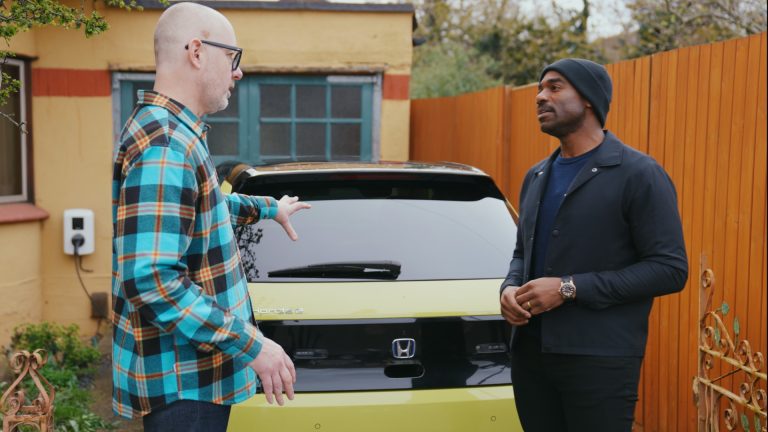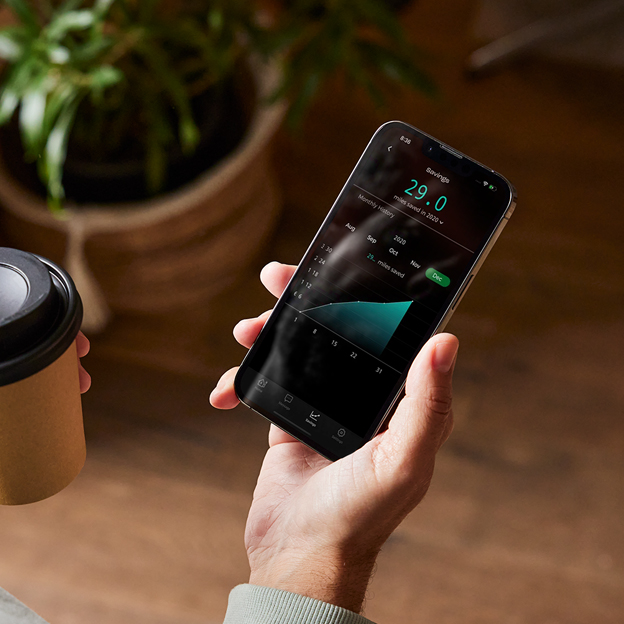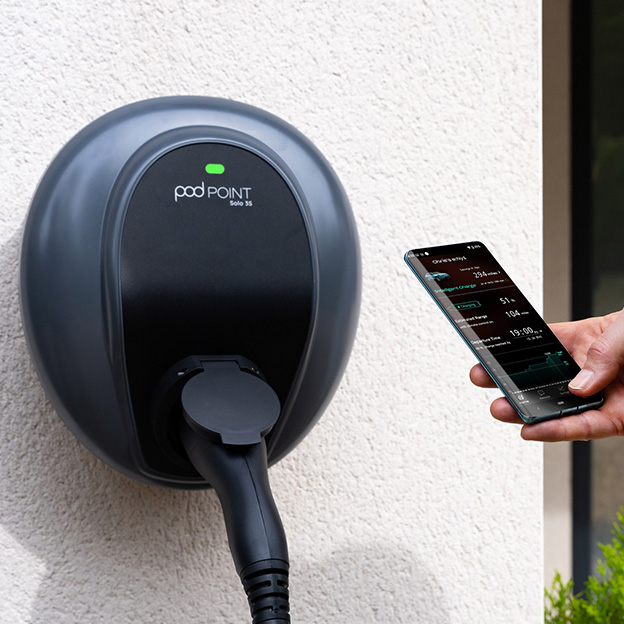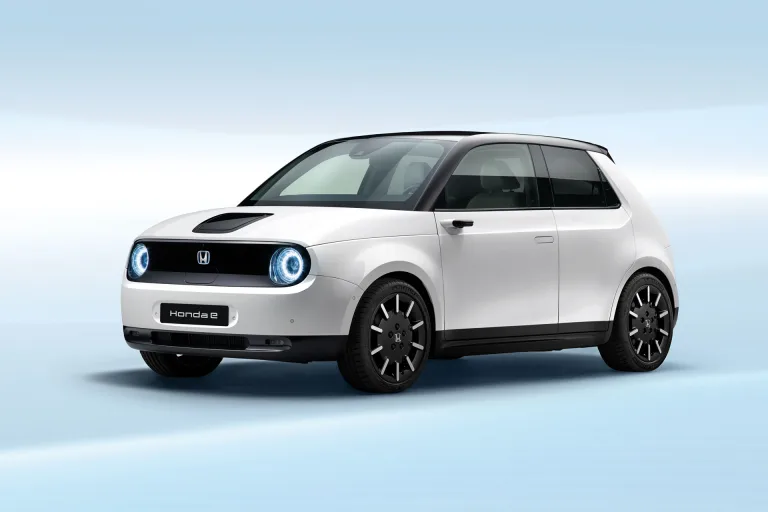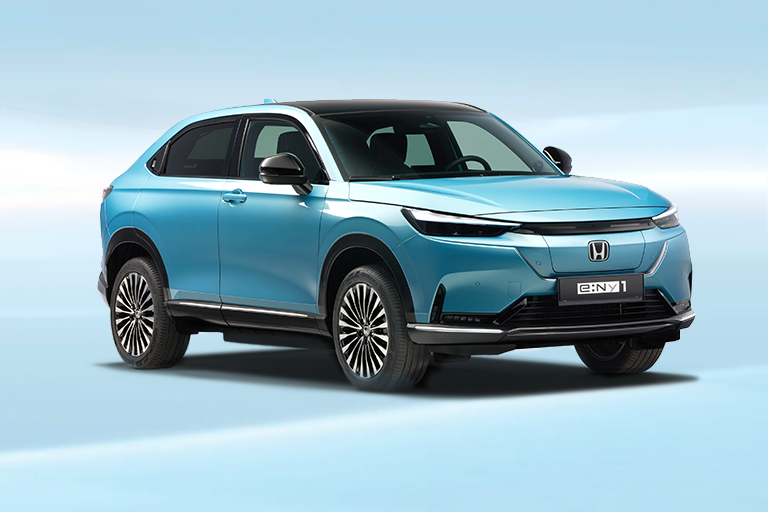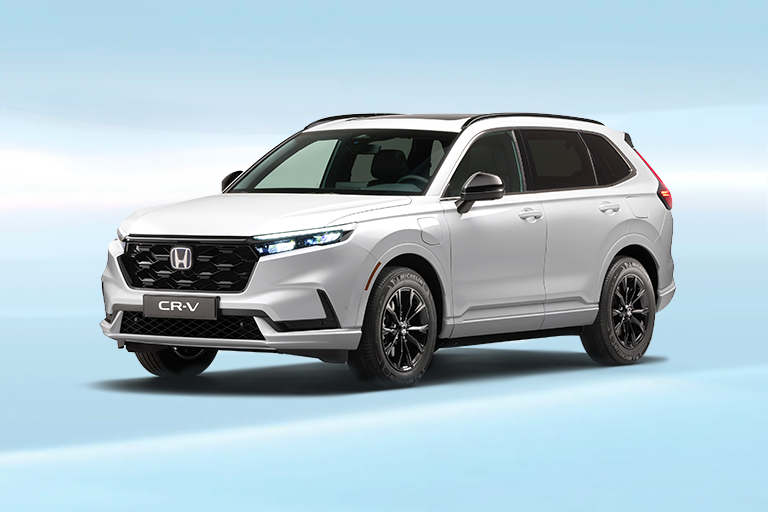Intelligent Home Charging
e:PROGRESS is an intelligent home charging app exclusively for Honda drivers.
Connect your vehicle to e:PROGRESS for personalised intelligent charging plans.

What is Intelligent Charging?
Charging your vehicle when electricty demand is lower is better for your pocket and the environment.
However, anyone can plug-in to charge at a specific time, so what's intelligent?
Using ground-breaking Gridshare software, e:PROGRESS automatically generates your plan for the lowest cost or greenest times. Empowering you to:
- Reduce the cost of every charge
- Minimise your impact on the environment
- Help to balance the electricity grid
e:PROGRESS is an intelligent home charging app. Here to drive change, our app connects your car and tariff to create charging plans that save you money, support the planet and help balance the grid.
Learn more about our appLooking for a home charger to be installed by a trusted partner? We offer this service as part of your e:PROGRESS journey. Partnering with leading charger manufacturer Pod Point, you can choose the home charging solution which is right for you.
See charging solutions
New to Home Charging?
Whether you’re new to the world of electric vehicles or interested in learning more about home charging, we understand that the industry can often feel a little complex. So, to lend a hand, we’ve outlined a few commonly asked questions and term descriptions to help guide you through this process.
What are the different types of tariffs and what do they mean?
As an industry standard there are two main types of energy tariff: fixed and variable. The fixed tariff will set the cost of energy for a certain amount of time, this is typically a year, while prices on a variable tariff can go up or down depending on the market. You can also source a dynamic tariff from select energy suppliers which is another type of variable tariff.
Within different energy providers there can be multiple options of variable tariffs. Octopus Energy for example has a variable tariff and a dynamic tariff available to customers. With Agile Octopus, you are able to access energy prices every half hour which are tied to wholesale prices and updated daily, this is known as a dynamic tariff. Whereas Octopus Go is a smart tariff with super cheap electricity which you can utilise between the hours of 00:30 – 04:30 every night, this is a variable tariff
Another benefit of either a standard variable or dynamic tariff is that you are not contractually bound, meaning that there is no end date, and you can switch at any time. When paired with your e:PROGRESS subscription, a variable or dynamic tariff will enable you to benefit from charging your car during the cheapest energy times.
If, however you want the certainty though of knowing how much your unit cost will be for set period and are happy to stick with your contract until it ends, then a fixed tariff is still suitable. By using a fixed tariff with e:PROGRESS, you are able to charge your Honda vehicle in the Carbon Optimisation mode, however you will not receive the maximum cost savings.
Source – Compare the Market
Do I need a Smart Meter?
In order to make the most of your e:PROGRESS subscription and receive the maximum cost savings, you will need a smart meter. This is because the tariffs that allow you to charge at optimal times to save the most money (such as Octopus Go and Agile Octopus) require a smart meter. However, if you are happy with your fixed rate tariff, then you do not need a smart meter to use e:PROGRESS. As in this case, the app will use the Carbon Intensity Forecast to charge your vehicle at times when the most energy and/or most renewable energy is available on the grid.
What is the difference between an electric car and a hybrid car?
A plug-in hybrid (known as a PHEV) features a battery and an electric motor which helps enhance efficiency. These cars retain a petrol or diesel engine, but the battery delivers up to 50 miles of electric range, depending on the specific model. To charge the battery, you can have a home charger installed or utilise the evolving network of public chargers available. Some describe plug-in hybrids as a stepping stone towards a fully electric vehicle because you’re able to do some driving on electric power, but you still have the safety net of an internal combustion engine to back you up.
An electric car (also known as a battery electric vehicle (BEV) or electric vehicle (EV) relies entirely on a battery pack as its means of propulsion. It must be plugged in when the battery is low on juice.
Source – RAC
Are electric vehicles expensive to run?
The running costs for electric cars are usually lower than fuel-powered alternatives, but you do have higher initial costs when making the switch to an EV.
The average cost per mile of a fuel driven car compared to an electric vehicle (providing you charge at home) is roughly 19p per mile for fuel and around 8p per mile for electric.
There are many other benefits too. EVs have fewer oily engine parts that are likely to go wrong, and you’ll get to skip out on things like oil changes, making them easier to maintain. Your electric car will still need maintenance for things like tyres and brakes, so you should factor that in when weighing up your options. Wear and tear is also inevitable, but you can keep your EV in sparkling condition by always keeping on top of the maintenance and treating it well.
Take into account the other discounts (tax and congestion charge exemptions, plus the government grants) and you could be saving yourself some money in the long run when opting for an electric vehicle.
Source – Cinch
